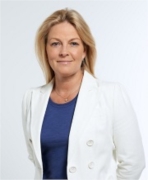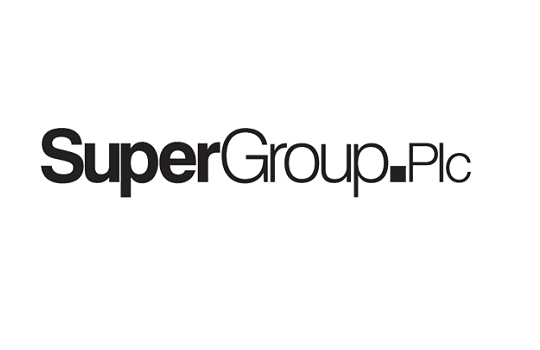 What does a typical day look like?
What does a typical day look like?
I work in Europe, the States and the Far East and so work across a range of different time zones. When I’m in the UK I’m office based. I start work around 8am and work through to 7.30pm. It’s been two years of investment and change. I look to get in early to enable me to look at the stats. Be it the distribution centre stats, sales stats or KPIs. I look to do this first thing. So the morning for me is focused around insight on operations and productivity. My productivity tip, which can apply across all industries, is to get in early and give yourself time to go through the stats, otherwise other matters will take your time away.
Who are SuperGroup?
SuperGroup is the parent company of the rapidly-expanding Superdry label, which started off as 'Cult Clothing' in Cheltenham in 1985.
The company went through rapid expansion in the 1990s but didn't use the Superdry name until 2004. Significant growth followed, leading to a stock market flotation in 2010.
The company is a constituent of the FTSE 250 index.
What’s the best advice you’ve ever received?
The best bit of advice I’ve received is to stay curious. I think that if you can stay curious you end up as a better manager – your curiosity enables you to have a broader view of the business.
What are you most proud of at SuperGroup?
I am most proud of the first class leadership team we have built and how quickly that leadership team has embedded in the business and is respected by the business. Also the team’s ability to deliver an implementation plan set against the biggest investment plans we have ever had.
How did you overcome some of the key challenges to growing a business?
The move of our distribution centre was a key challenge. We had to make the case for the need to move the distribution centre. Previously we were use to it being close to head office, but we needed a distribution centre that was fit for purpose and for international delivery. We now have a distribution centre in Staffordshire that is half an hour from international hubs and we have been able to reduce costs per unit. The challenge now is to ensure capacity over the five year plan and how to support that.
Can you tell us about how you scaled the growth of SuperGroup?
We are only a young company. We have grown disproportionately quickly. Within that, how do you manage and control the brand? We are re-setting commercial agreements. Over the last two years we have picked global partners based on their ability to bring the brand into new territories. Picking a business partner who can adequately represent our business – a partner that can demonstrate success in the past, that is well-financed and do what they commit to doing – is a difficult thing. It’s a process of taking control of the brand and our markets and re-evaluating partnerships.
What advice would you give to businesses that are starting to experience real growth?
Well “you don’t know what you don’t know” is the phrase I would use. As a small business your horizons will change. Ask yourself what it looks like and what you should do. You personally cannot do it all – you will need to bring people in. At some stage you will run out of capacity in the key areas, be it in your IT systems or your infrastructure won’t stretch. I’d also say network and use support such as CBI for free information & support.
How do you attract good quality people to the brand?
The management team has different skills but what we share are strong personalities and credibility. James Holder [Brand and Design Director] & Julian Dunkerton [CEO] have the passion and are the heart of the business. We recruit people around passion and with a fast growth, young business with no cash constraints that’s a compelling story and opportunity.
How would you describe your leadership style?
I’d say flexible, demanding, clear around objectives and supportive. When your leadership team is on a development curve you need to ask, "are they capable of operating at both a strategic and operational level?"
In your view what is the best way to manage teams in dynamic growth environments?
I would come back to the theme of being a fast growth business. It’s key that you need people who are strong strategically – they can look at the horizon – but also they need to be good with the details now. The ability to be able to move between the two demands, strategic and immediate, is key in a fast growth environment. Not many people can do that. You have to accept that you cannot put everyone in place that you might actually need in place today. You need to time and pace yourself. That means that today senior management have to be close to the detail but also charting out future requirements. You need the two different perspectives.
How would you describe the culture at SuperGroup?
Highly entrepreneurial and a young spirited business. We operate in the youth sector and as a young business we have energy and passion. What’s key for me is that there is a lot of openness and opportunities for growth and change. We are a young company so I’ve not come up against the attitude of "we cannot change this," because, for example, "we’ve always done it like this” etc. You don’t get that response to change. The pace of change is quite liberating.
What advice would you offer those that may be want to work for SuperGroup?
Gusto and enthusiasm are key. We’re always looking for new talent. So have a go – contact our HR team.
How do you encourage people to give their best at SuperGroup?
Key to this I think is openness, curiosity and flexibility. Allowing people to take on more, to be ambitious and enabling people to move into different areas of the business.The opportunities for that are plentiful. It’s open minded and that creates the motivation.





